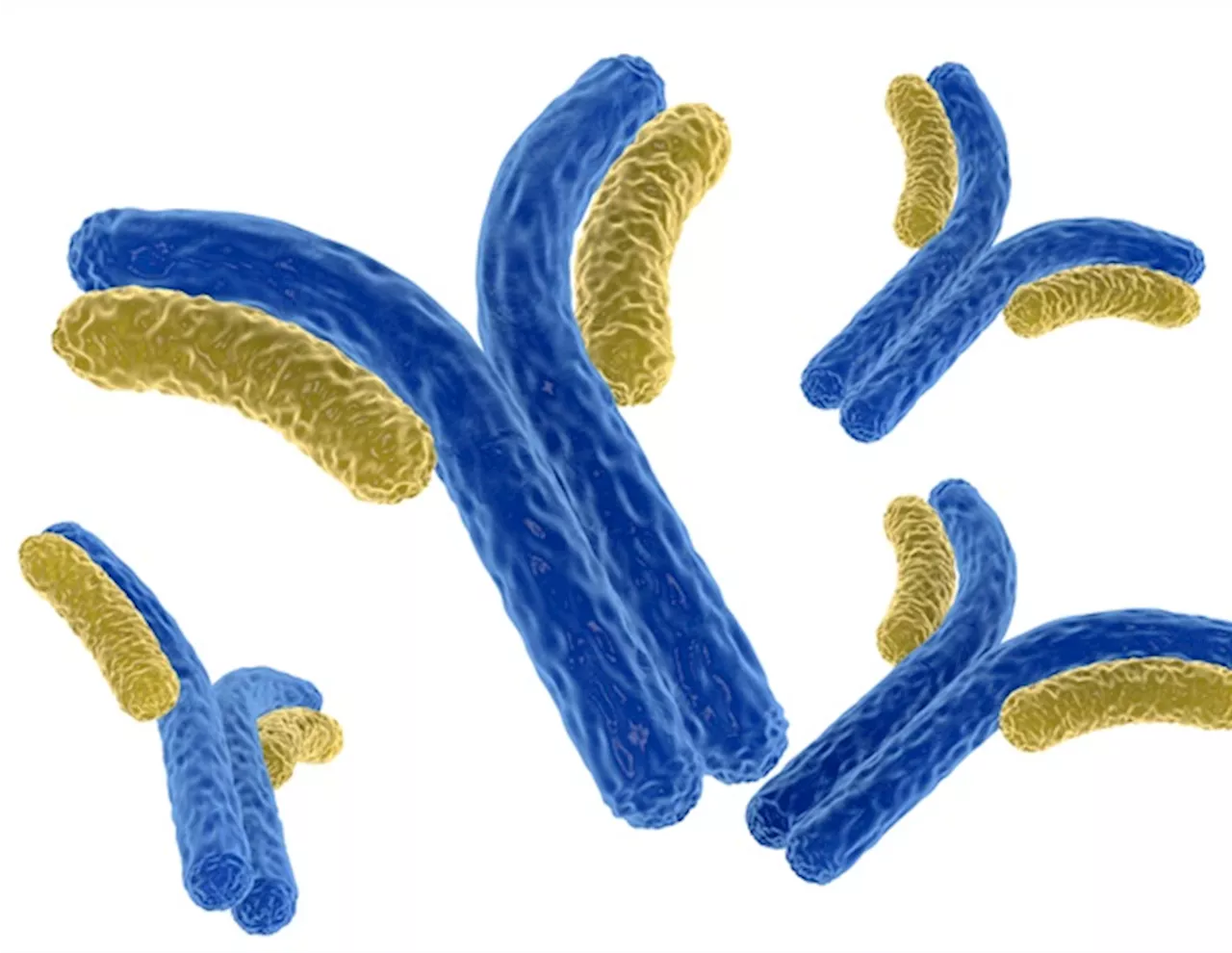Tumor cells often hijack normal physiological processes to support their growth, exploiting proteins that are in charge of essential cell functions.
May 29 2024Ecole Polytechnique Federale de Lausanne It is therefore important to block the activity of these proteins only in cancer cells without affecting their crucial roles in healthy tissues. For this reason, classical approaches using small molecules that induce systemic inhibition across all cells in the body can lead to severe side effects.
Now, a team of scientists led by Elisa Oricchio and Bruno Correia at EPFL has developed a novel approach to overcome these limitations. They created a modular drug platform that conjugates non-natural peptide inhibitors with antibodies, creating antibody-peptide inhibitor conjugates . This method ensures that the inhibitors are delivered specifically to cancer cells, thereby reducing systemic side effects and increasing therapeutic efficacy.
The researchers began by designing NNPIs that covalently bind to and inhibit cathepsins. They modified peptide sequences to include a Michael acceptor, a chemical moiety that makes it easier to form a stable bond with cathepsins. The researchers identified several strong inhibitors against four different cathepsins, namely cathepsin S, B, K and L. By attaching these inhibitors to antibodies that recognize CD22, CD79, HER2, and Siglec15, the researchers could precisely deliver the NNPIs to lymphoma cells, breast cancer cells and osteoclasts. This leverages the natural ability of antibodies to be internalized by target cells, precisely directing the inhibitors where they are needed.
Cancer Cancer Therapy Antibodies Breast Cancer Cell Efficacy ELISA Lymphoma Osteoporosis Protein Research Small Molecules Tumor
United Kingdom Latest News, United Kingdom Headlines
Similar News:You can also read news stories similar to this one that we have collected from other news sources.
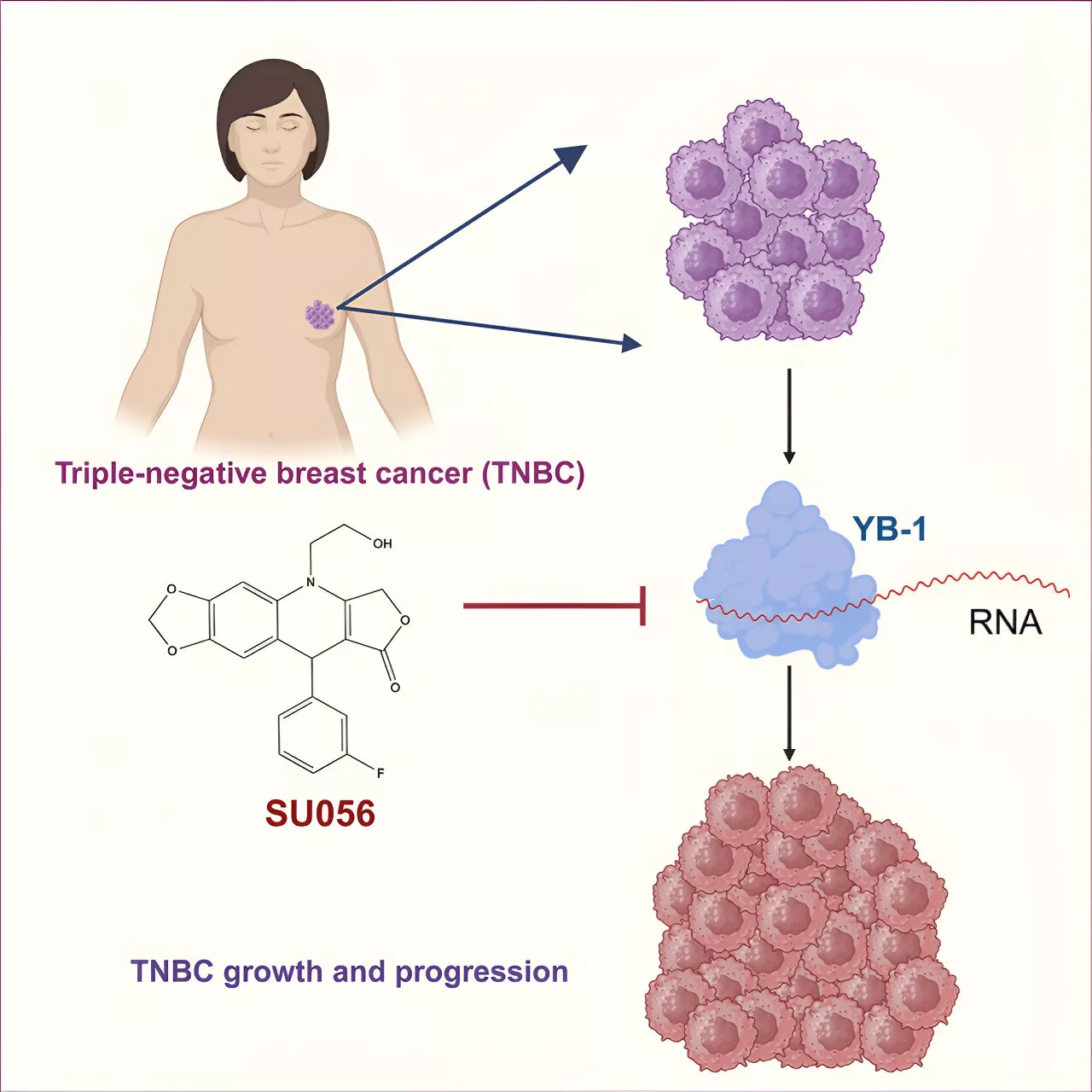 Cancer drug shows powerful anti-tumor activity in animal models of several different tumor typesBehind the scenes, as tumors progress and gain resistance to treatment, a protein called YB-1 quietly gives directions. Now, researchers at Oregon Health & Science University have developed a first-of-its-kind drug that inhibits YB-1, effectively silencing those orders.
Cancer drug shows powerful anti-tumor activity in animal models of several different tumor typesBehind the scenes, as tumors progress and gain resistance to treatment, a protein called YB-1 quietly gives directions. Now, researchers at Oregon Health & Science University have developed a first-of-its-kind drug that inhibits YB-1, effectively silencing those orders.
Read more »
 New guidelines shape the future of neuroendocrine tumor managementNewly updated guidelines on neuroendocrine tumors developed by an expert at Sylvester Comprehensive Cancer Center at the University of Miami Miller School of Medicine and collaborators provide clinicians with the latest recommendations for staging and management of these rare but increasingly diagnosed tumors.
New guidelines shape the future of neuroendocrine tumor managementNewly updated guidelines on neuroendocrine tumors developed by an expert at Sylvester Comprehensive Cancer Center at the University of Miami Miller School of Medicine and collaborators provide clinicians with the latest recommendations for staging and management of these rare but increasingly diagnosed tumors.
Read more »
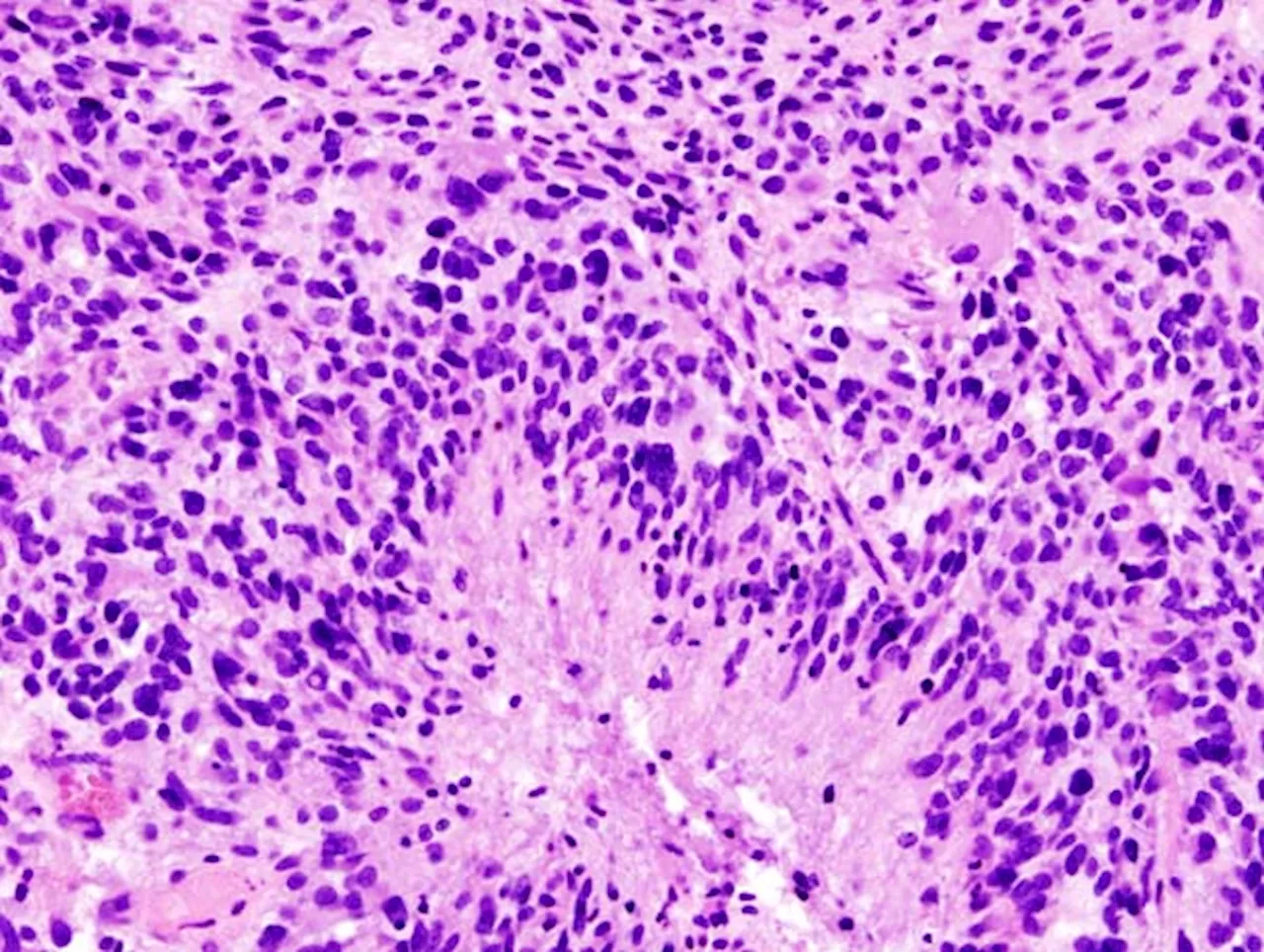 New mRNA cancer vaccine triggers fierce immune response to fight malignant brain tumorIn a first-ever human clinical trial of four adult patients, an mRNA cancer vaccine developed at the University of Florida quickly reprogrammed the immune system to attack glioblastoma, the most aggressive and lethal brain tumor.
New mRNA cancer vaccine triggers fierce immune response to fight malignant brain tumorIn a first-ever human clinical trial of four adult patients, an mRNA cancer vaccine developed at the University of Florida quickly reprogrammed the immune system to attack glioblastoma, the most aggressive and lethal brain tumor.
Read more »
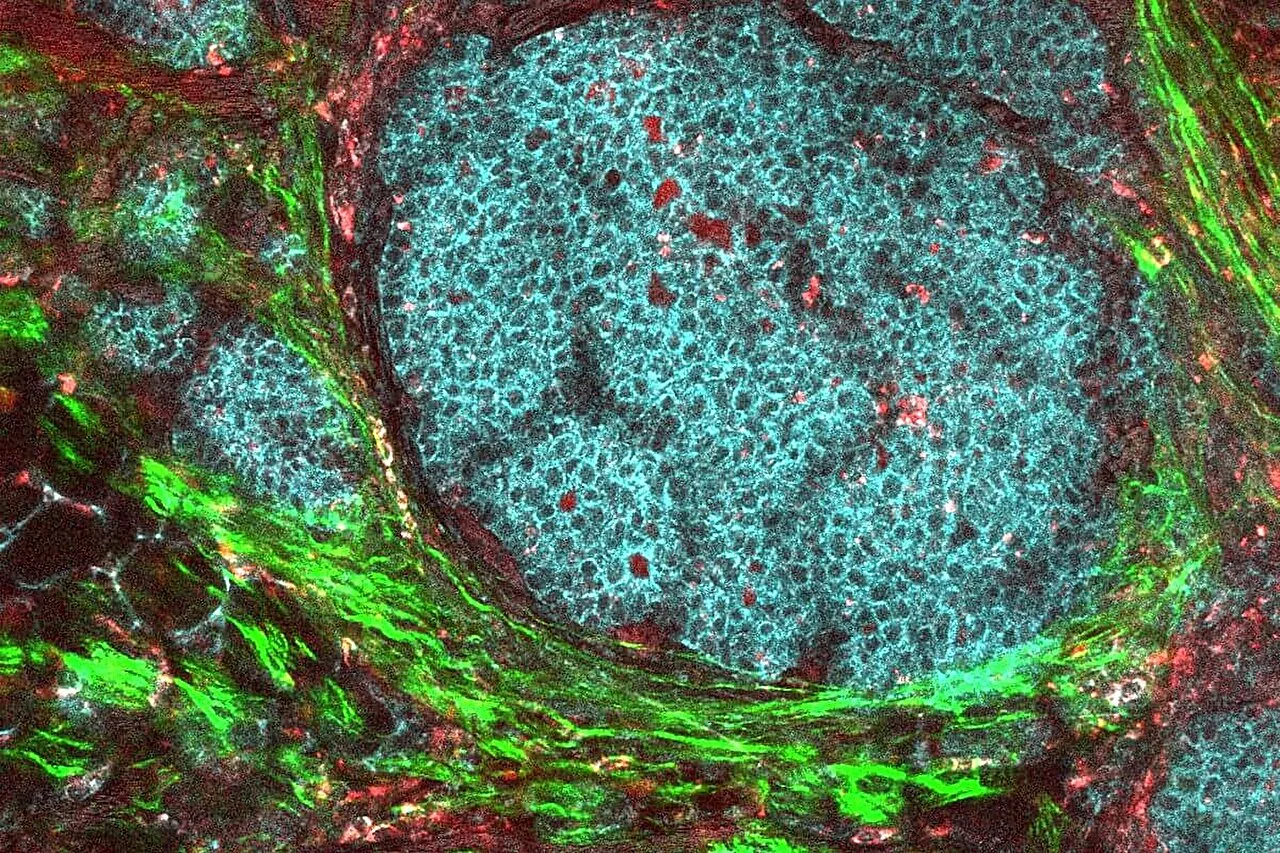 Turning a tumor's 'shield' into a weapon against itselfTumor cells are 'cunning,' according to Peter Yingxiao Wang. They have a nefarious way of evading the human immune responses that fight back against these cancerous invaders.
Turning a tumor's 'shield' into a weapon against itselfTumor cells are 'cunning,' according to Peter Yingxiao Wang. They have a nefarious way of evading the human immune responses that fight back against these cancerous invaders.
Read more »
 The key role of Galectin-3 in brain tumor developmentA research group at the Department of Biochemistry and Molecular Biology of the University of Seville has made a significant advance by discovering the crucial role of the protein Galectin-3 in the progression of various types of brain tumors.
The key role of Galectin-3 in brain tumor developmentA research group at the Department of Biochemistry and Molecular Biology of the University of Seville has made a significant advance by discovering the crucial role of the protein Galectin-3 in the progression of various types of brain tumors.
Read more »
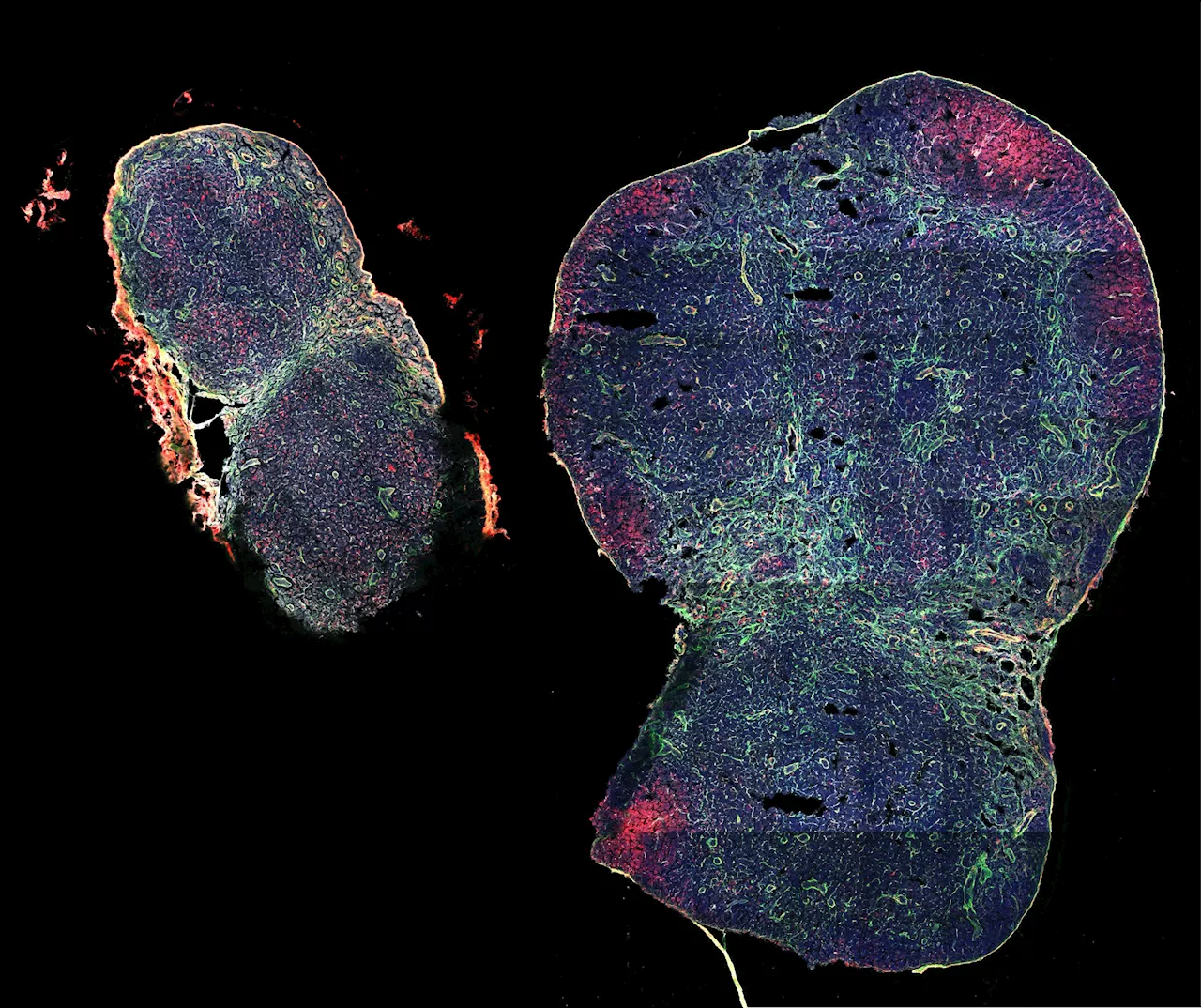 Biomaterial vaccine enhances lymph node expansion following vaccination, boosting anti-tumor immunityEach one of us has around 600 lymph nodes (LNs)—small, bean-shaped organs that house various types of blood cells and filter lymph fluid—scattered throughout our bodies. Many of us have also experienced some of our LNs to temporarily swelling during infections with viruses or other pathogens.
Biomaterial vaccine enhances lymph node expansion following vaccination, boosting anti-tumor immunityEach one of us has around 600 lymph nodes (LNs)—small, bean-shaped organs that house various types of blood cells and filter lymph fluid—scattered throughout our bodies. Many of us have also experienced some of our LNs to temporarily swelling during infections with viruses or other pathogens.
Read more »
